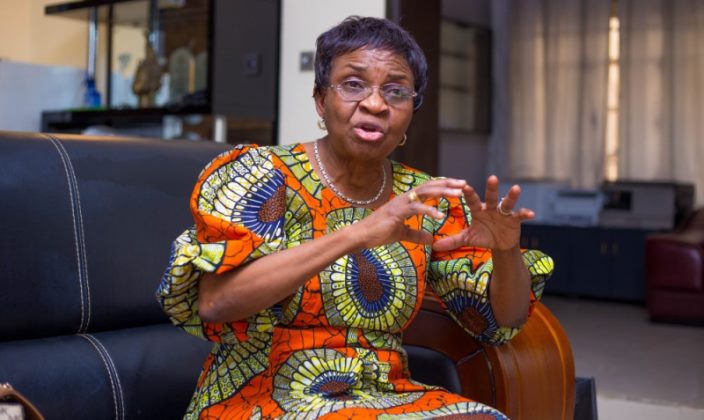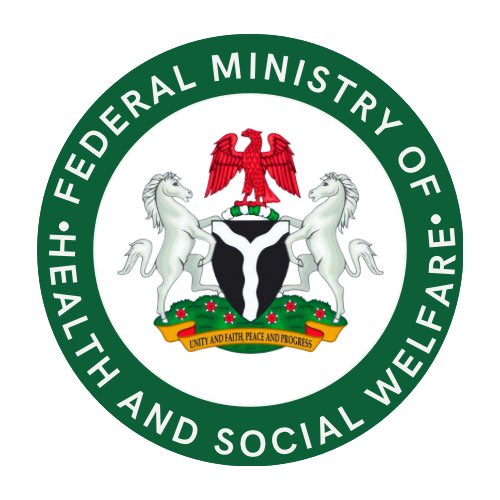Listeners:
Top listeners:
-
play_arrow
104.9FM Best rock music demo
-
play_arrow
Demo Radio Nr.1 For New Music And All The Hits!
-
play_arrow
Demo Radio Techno Top Music Radio
-
 play_arrow
play_arrow
Police Commissioner Launches Weapon and Riot Control Training for FCT Officers Democracy Radio
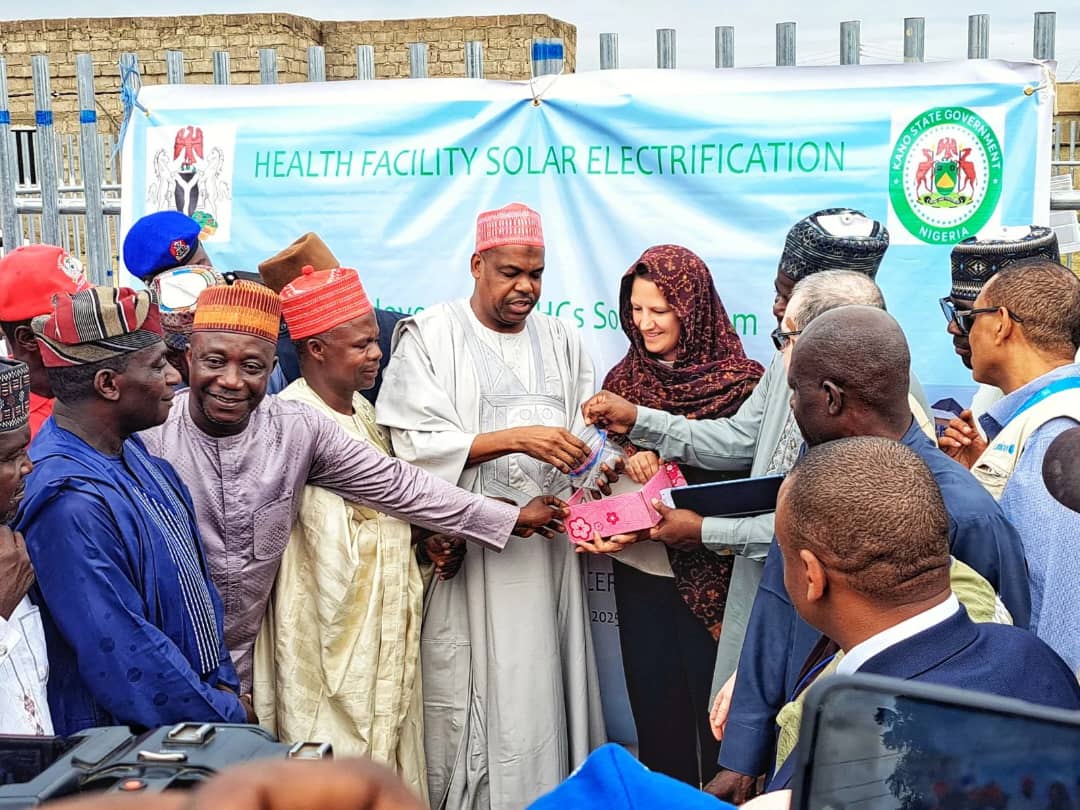
By: Julian Osamoto
Healthcare delivery in Kano State has taken a major step forward following the handover of 28 fully solar-powered primary healthcare centres (PHCs) by the United Nations Children’s Fund (UNICEF), with support from Gavi, the Vaccine Alliance, and implementation by eHealth Africa.
The facilities, officially transferred to the state government on August 11, are part of a wider initiative to solarize 238 PHCs across 12 Nigerian states, targeting communities with high numbers of “zero-dose” especially children who have never received a single vaccine.
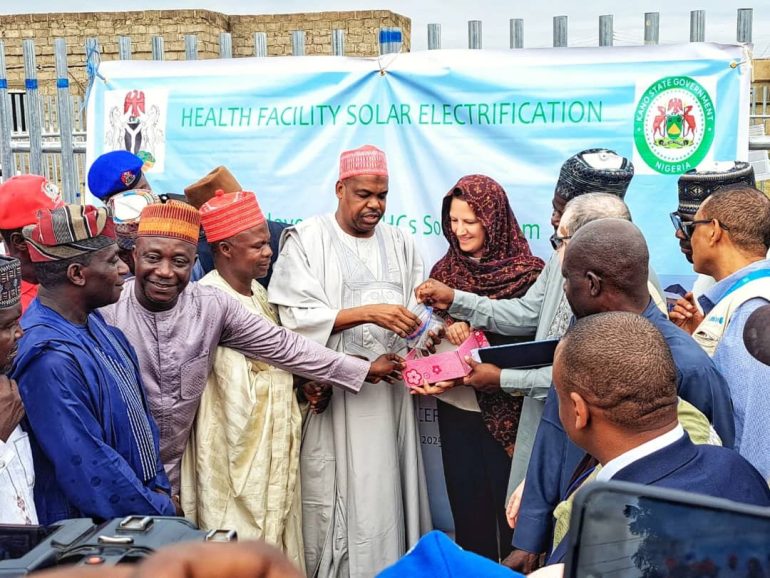
According to Amarachi Mbagwu, Communications Manager at eHealth Africa, the intervention is already transforming healthcare services. “Facilities now operate 24/7, with uninterrupted maternal and child health services, reliable vaccine storage, and continuous immunisation campaigns,” she said.
At Panshekara PHC in Kumbotso Local Government Area, patient attendance rose dramatically from 1,300 to over 3,000 in just one month, after the solar upgrade, attracting pregnant women even from neighbouring areas.
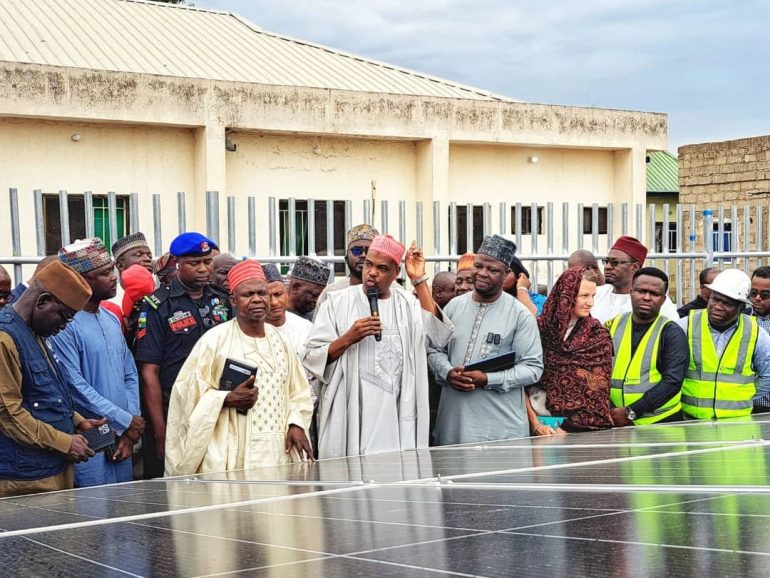
Atef Fawaz, Executive Director of eHealth Africa, emphasised that the project was about more than infrastructure.
“This project is not just about installing solar panels. It’s about giving communities the power to access essential healthcare when they need it most. Patients and health workers in underserved communities now have the resources they need to save lives,” he said.
He praised the partnerships that made the initiative possible, stating that: “None of this would be possible without the strong partnerships we’ve built with governments, donors, and organisations committed to lasting, sustainable healthcare.”
Rahama Farah, UNICEF’s Chief of Field Office in Kano, represented by Officer-in-Charge Michael Banda, highlighted the importance of sustainable energy in the health sector.
“Reliable power enables proper vaccine storage, 24-hour service delivery, and reduced reliance on fossil fuels,” he said.
He explained that the project stemmed from a 2023 Primary Health Care functionality assessment, which identified 371 health centres nationwide for solarization.
Receiving the facilities, Kano’s Commissioner for Health, Dr. Abubakar Labaran Yusuf, urged communities to use the centres responsibly.
“The availability of constant power means healthcare can be delivered at any time—even at midnight—and people will no longer be hesitant to seek care,” he noted.
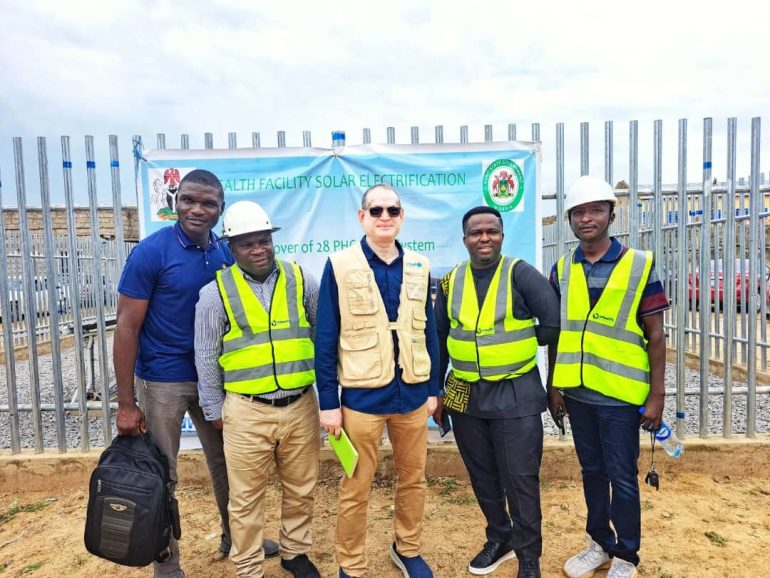
Health workers, once constrained by erratic electricity, now report renewed motivation, while patients benefit from uninterrupted services, same-day laboratory results, and consistent vaccine availability.
Officials say the initiative not only strengthens routine immunisation but also rebuilds community trust in Nigeria’s healthcare system.
Written by: Toyeebaht Aremu
Similar posts
Copyright Democracy Radio -2024

